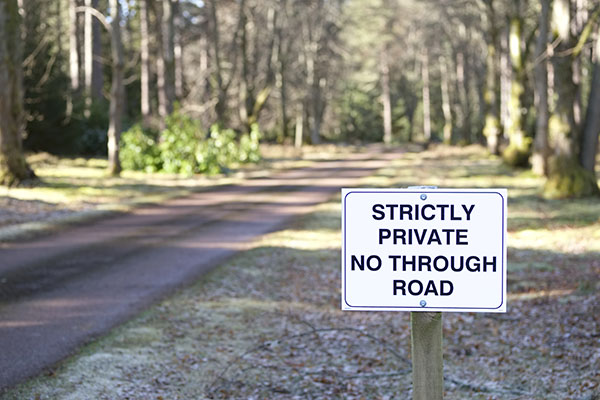
Aside from easement of right of way: HOW ARE EASEMENTS ACQUIRED?
-
The owner of an estate may claim a legal right of way only after he has established the existence of all the requisites.
-
The easement of right of way shall be established at the point least prejudicial to the servient estate
-
Easement of right of way is not compulsory if the isolation of the immovable is due to the proprietor’s own acts.
Easement of Right of Way is a privilege by which one person or a particular class of persons is allowed to pass over another’s land, usually thru one particular path or line.
Under the Civil Code:
The owner, or any person who by virtue of a real right may cultivate or use any immovable, which is surrounded by other immovables pertaining to other persons and without adequate outlet to a public highway, is entitled to demand a right of way through the neighboring estates, after payment of the proper indemnity.
In the case of Jose Ma. Locsin, et al. v. Rafael C. Climaco (L-27319, Jan. 31, 1969) explained that the owner of an estate may claim a compulsory (legal) right of way only after he has established the existence of 4 requisites, namely:
- the estate is surrounded by other immovables, and is without adequate outlet to a public highway;
- payment of the proper indemnity;
- the isolation should not be due to the proprietor’s own acts;
- the right of way claimed is at a point least prejudicial to the servient estate and insofar as consistent with this rule, where the distance from the dominant estate to a public highway may be the shortest.
The onus or burden of proof is upon the owner of the dominant estate to show by specific averments in his complaints the existence of the requisites or pre-conditions enumerated.
The Proper Indemnity
- If the passage is permanent, pay the value of land occupied by the path plus damages. Upon extinction of the easement, the indemnity is returned without interest, for the interest is considered rent.
- If temporary, pay for the damages caused. It is temporary when, for example, the estate is not being cultivated the whole year round, and when harvesting is only once in a while.
The easement of right of way shall be established at the point least prejudicial to the servient estate, and insofar as consistent with this rule, where the distance from the dominant estate to a public highway may be the shortest.
Alburo Alburo and Associates Law Offices specializes in business law and labor law consulting. For inquiries, you may reach us at info@alburolaw.com, or dial us at (02)7745-4391/0917-5772207.
All rights reserved.
SUBSCRIBE NOW FOR MORE LEGAL UPDATES!
[email-subscribers-form id=”4″]

